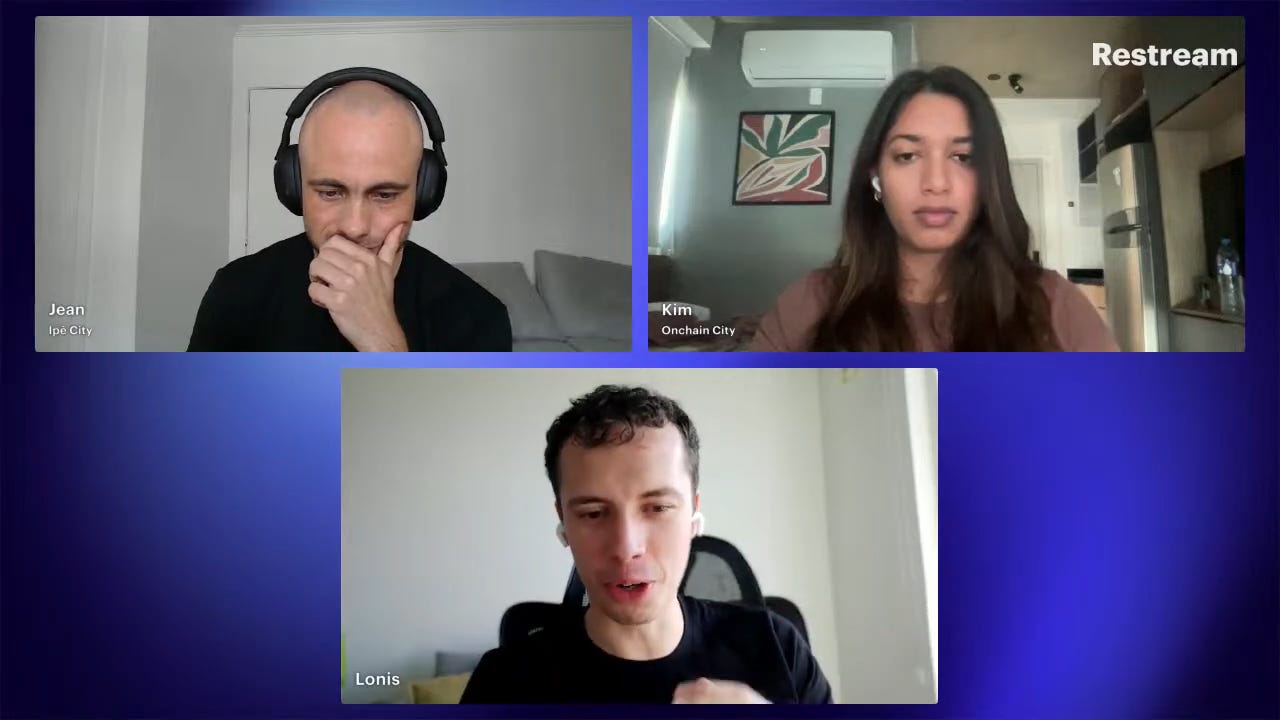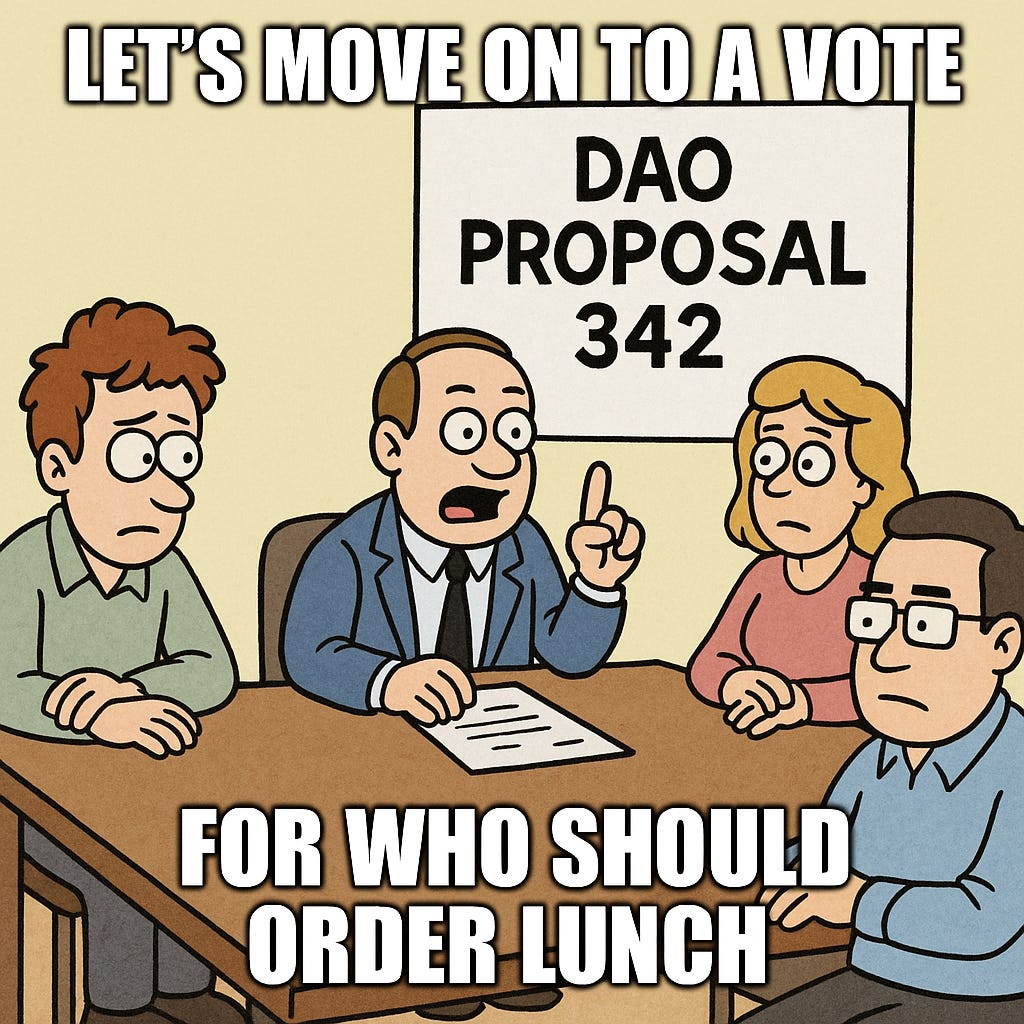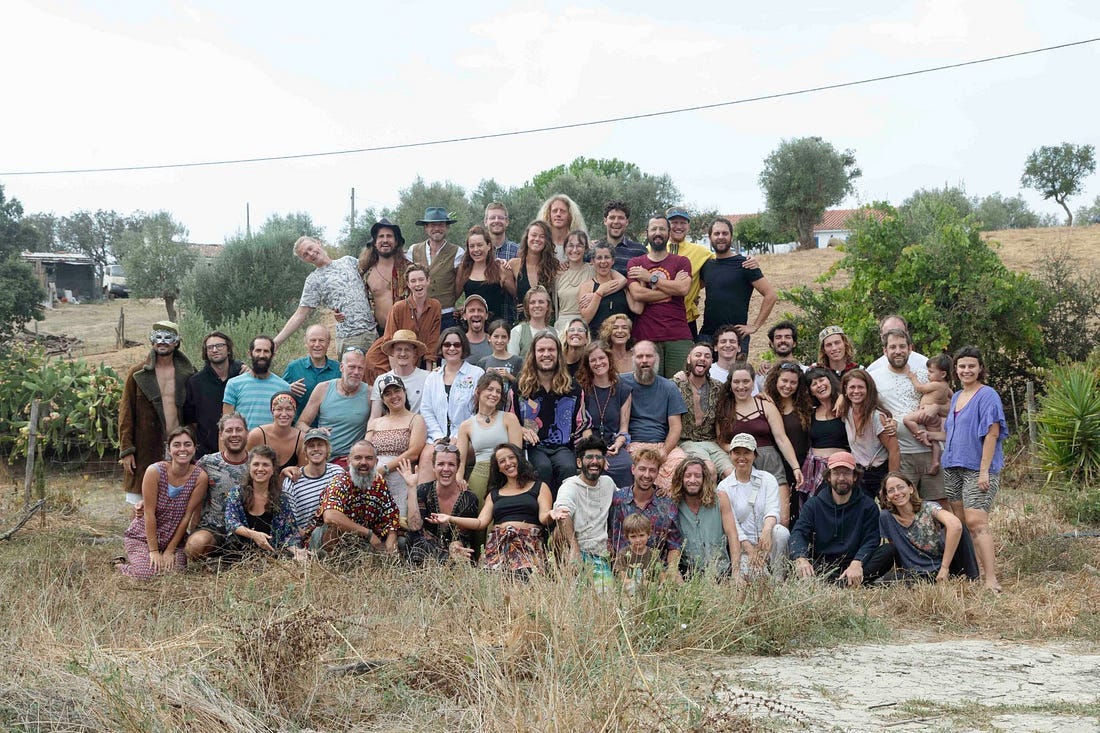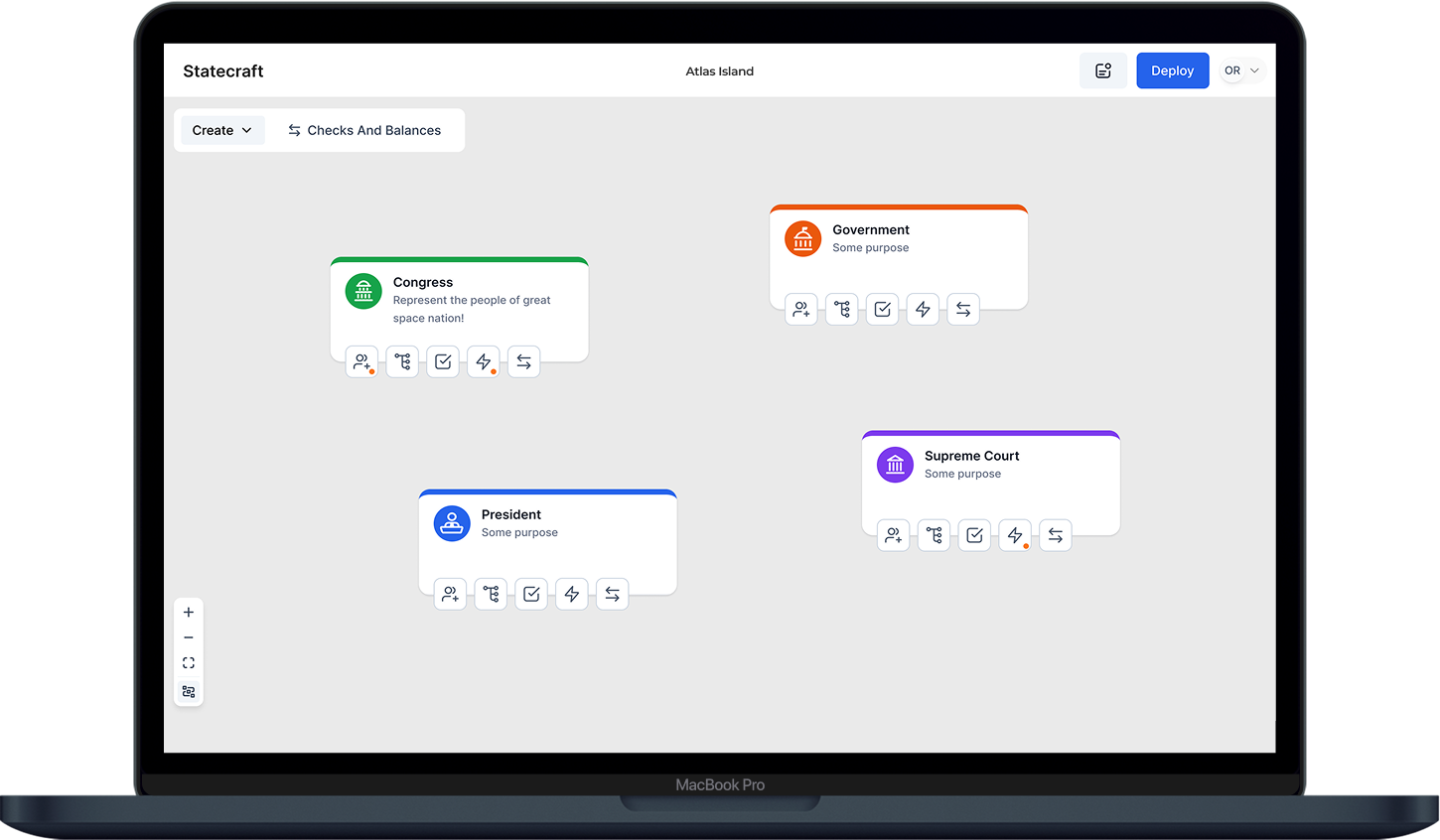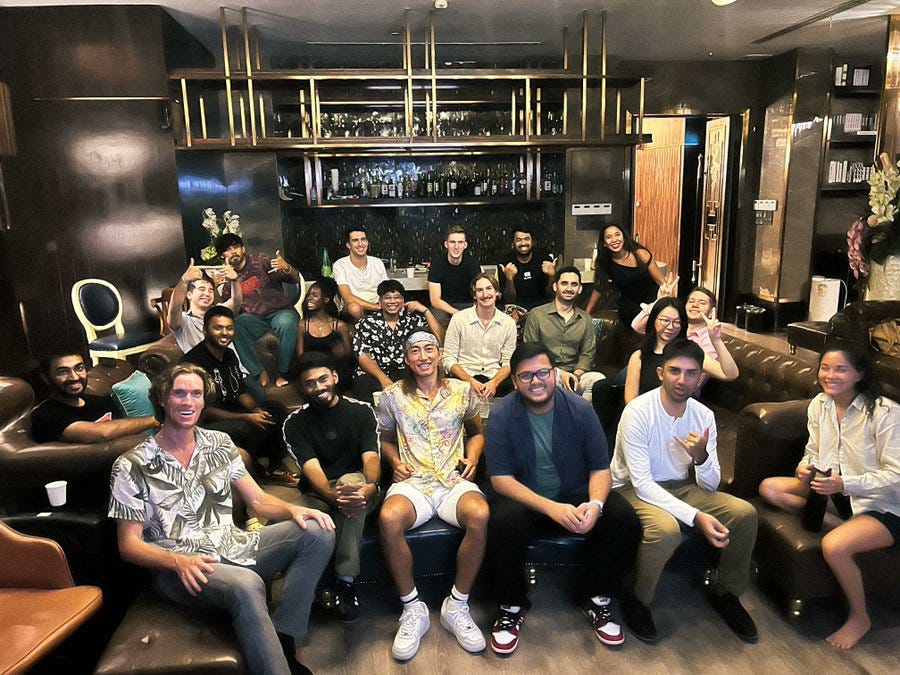Ipê News #9 - Voting tools, network state builder, DeFi for prediction market, and more
Your weekly update on what is happening in the Startup Society ecosystem.
Hey builders!
Welcome to our 9th edition of the Ipê News. Every week, we’ll explore the most compelling concepts and projects emerging in the Network State space, from new communities and cities to innovative governance protocols and parallel institutions.
Subscribe for free to receive it weekly in your inbox and join our Discord Server.
🏘️ Community Updates
Highlights from Ipê City, partner communities, or aligned initiatives.
Ipê keeps growing
Last week, the team hosted the first guest on Startup Cities Live, with Lonis from Prospera giving us more details on the history and future plans of the growing startup society, following his 5-minute talk at the Network State Conference. Every week, the Startup City Team will bring on a new guest to explore the frontier of network societies, so let us know if you would like to hear someone in particular.
The Pulse streak continues, now at number 5, and it’s never too late to get your own streak to obtain proposal power. It is not official yet, but expect some benefits for consistent participants. We won’t say more. Our next Proof of Collective Action will happen with the next Town Hall, on the 2nd & 16th of every month. Join us to be part of the community!
🏫 Learning section
A learning segment to upskill and be able to build the tools of the future.
Governance through voting
Voting is only one of many tools communities can use to make decisions, yet it is diverse and confusing. Beyond the familiar one-person-one-vote, builders are exploring diverse systems that weigh preferences, expertise, or long-term commitment in different ways.
From score voting, where participants rate options on a scale, to conviction voting, which lets support accumulate over time, and reputation-based models that reward contribution and trust, each approach provides different values.
Frameworks like metrics-based voting, Condorcet methods, and futarchy (more on this later) push the frontier further, showing that even within “voting,” design choices can shape entirely different governance systems. For a broader view, explore the common voting types used in DAOs and methods like the Weighted Phragmén system, which optimize fairness and representation.
🌐 Network Societies Update
A quick pulse on emerging cities, nomad groups, and experiments shaping the future of network societies.
TDF Citizenship
The Traditional Dream Factory (TDF) is the prototype in Portugal of a regenerative way of life, from Oasa, a Swiss DAO for regenerative communities built on the Closer protocol (on Celo).
In their tech stack, they offer a token that represents one night per year for life, a proof-of-presence token, and a proof-of-sweat token to reward supportive participants. Anyone can use the Closer platform, with a lot of booking features and even an AI assistant.
Activities and events are too numerous to list, with over 20 people on the ground at all times, from the team, stewards, and long-term residents. They also host seasonal events, welcome nomads, host podcasts, and they have a continuous stream of guest and volunteers, with a total capacity over 60 people.
Over the years, they built a sauna, biopool, water retention lake, chicken coop, food forest, workshop, glamping site, mushroom farm… and the list goes on. The only way to wrap your head around it is to go and visit them.
So what’s the news? They just started selling citizenships, while they prepare to expand onto more land. If that weren’t enough, the Closer platform includes an affiliate program, so you can easily earn from sending your regen friends there.
⚖️ Governance Tools
Exploring mechanisms for coordination, decision-making, and digital governance.
Statecraft: drag and drop on-chain governance
After a few years of stealth development, Statecraft is now deploying their no-code governance platform to build network states … and more! You can select from a list of templates or design from scratch, adjusting your bodies of state like LEGO blocks.
Start building a network state: you can decide how people join, through elections, appointments or open enrollments, then decide how each body of the state operates: decision-making rules, powers, checks & balances. Watch the process in action.
Once the structure is ready, invite your community and start pushing proposals based on the rules! Everything is on-chain, so private voting is enabled by Zero-Knowledge proofs, even though having a wallet is abstracted thanks to OAuth and Google login.
🛠️ Web3 Tools
Tech shaping decentralized living, finance, and identity.
Futarchy vs. prediction market
We explored futarchy as a governance tool with a bright future, but it’s not always clear how it is different from prediction markets. Let’s clarify.
Futarchy is a decision-making tool that actually forks the governance tokens into conditional markets. People bet on the policy that has the most chances to maximize a specific metric, usually the token value of the governance token. When a policy is enacted, only the token forked for that policy becomes redeemable, at a value that could fulfill the promises … or not.
Prediction markets are mostly about betting on an outcome, for example, who’s going to win the elections. You buy shares of values between 0 and 1, and if you’re right, it will be redeemable for $1 a share, if you’re wrong $0. However, these votes can take a long time to be confirmed, and there is clearly an incentive to bet early if you can spot early trends.
That’s why now we are seeing DeFi projects offering the option to borrow on your Prediction Market investment, just so you can still make your money work while it is waiting for your prediction to be confirmed. Collateralization for gamblers? What could possibly go wrong.
🌍 Other Interesting News
Broader movements and stories from the frontier of digital-first governance and societies.
Commons, fostering relationships in network societies
When building new societies, everyone talks about highly aligned communities. But how do you foster a community, in particular if it’s a completely new crowd from diverse backgrounds?
That’s what some of the members of the Network School are experimenting with, by building the Commons movement to foster deep relationships. It is still in its infancy, but they recently had their first meetup, testing how you can use technology to improve platonic and romantic matchmaking in network societies.
The key tool they tried is Match Box, a matching algorithm for in-person events, providing evidence-based questionnaires to make the best platonic or romantic matches. They even provide guides for your next event. Similar tools exist to make friends around dinners, or find communities around fitness, but the tooling for real-world matchmaking is still very small. Builders, the opportunities are plenty for human connections. What are you going to build?
💡 What is Ipê City?
A Techno-Optimist Community and Governance Lab
Ipê City is an innovative, techno-optimist community and social laboratory dedicated to exploring and experimenting with new ways of self-governing. It serves as a real-world testbed for decentralized and futuristic social models, blending technology, community, and governance in a unique way.
Reply to share your project, join the community, or let us know what you think
Join us:


